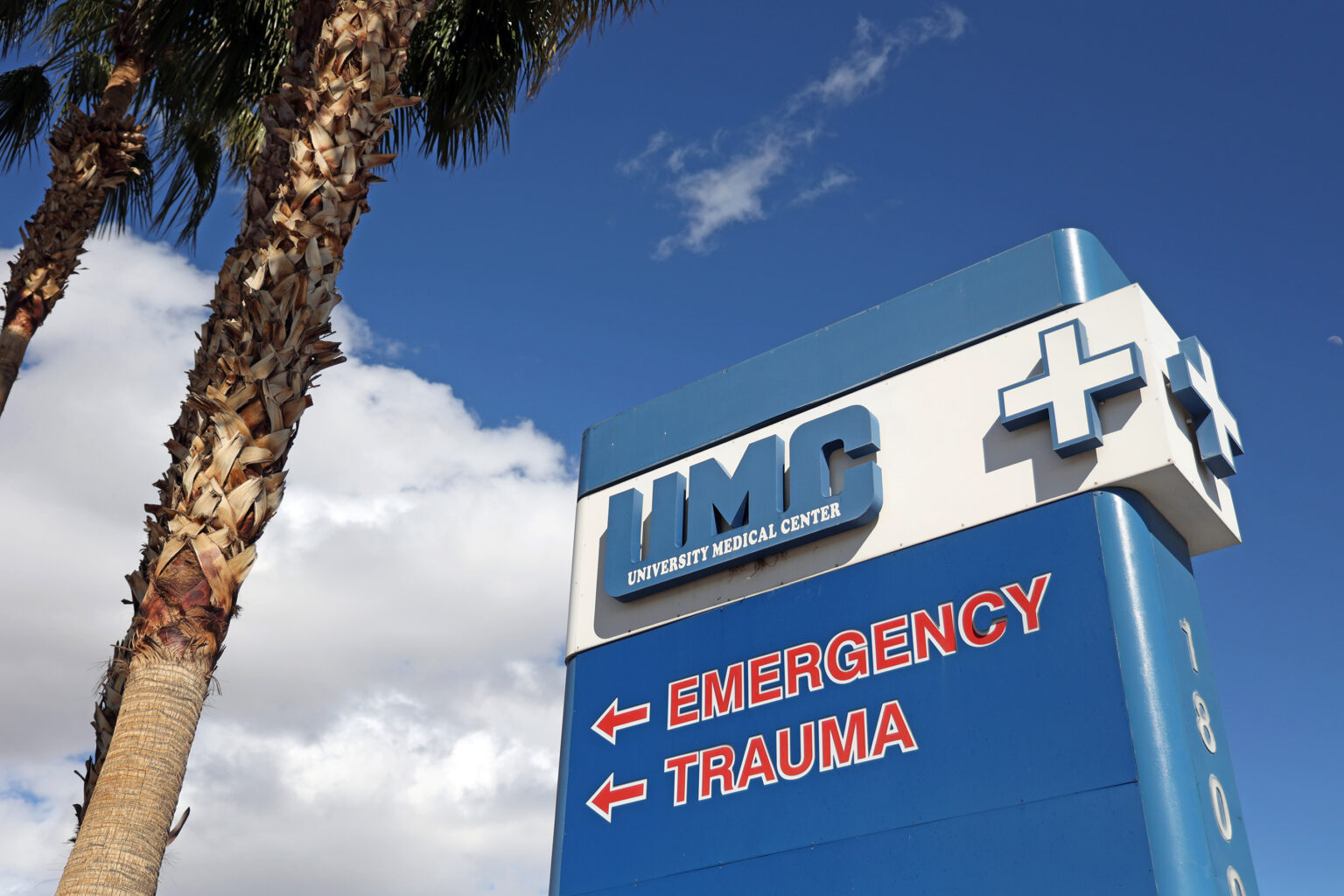6:00
News Story
UMC, Culinary Health warn of private equity’s ‘endless pursuit of profits over patients’
Nevadans in need of health care are experiencing the negative impacts of corporate consolidation and private equity investment groups “driven by an endless pursuit of profits over patients,” state lawmakers were told Monday.
“The market is starting to feel the effects of what medicine run by faceless corporations can mean to patients,” University Medical Center CEO Mason Van Houweling warned state lawmakers Monday during an interim legislative committee on health and human services.
According to Van Houweling, Desert Radiology last year terminated its 58-year relationship with the state’s largest publicly owned hospital because it was not profitable enough for the long-standing radiology practice’s new owners — Radiology Partners, also referred to as Rad Partners, a national radiological practice that is two-thirds owned by a combination of the private equity firm Whistler Capital, the venture capital firm New Enterprise Associates, and an Australian sovereign wealth fund.
It was a “sudden and unfortunate end,” said Van Houweling.
“Apparently, serving the community’s most critically ill and injured patients is not profitable enough by the firms backing companies like Desert Radiology,” he continued. “In fact, I was looked in the eye by this company and told our 10% profit margins are not enough; we had to be at 20%.”
Rad Partners acquired Desert Radiology in 2019 amid rapid nationwide growth. The company did not return the Current’s request for comment by publication time.
Culinary Health Fund President Jesus Vidueira shared with lawmakers a similar experience with Desert Radiology and Rad Partners. He said that after the acquisition Culinary members began reporting they were “treated as a third-class citizen” and having trouble accessing the care they needed.
Culinary Health eventually opted to open their network to other providers after Desert Radiology demanded significantly higher rates
Van Houweling said these tales of private equity firms coming in and demanding new contracts and exorbitant fees while also reducing services is not exclusive to the radiology field.
“There’s a lot of examples that are happening,” he said, “(and) that will be happening in the future.”
Advocates say the number of private equity deals skyrocketed from 352 to 937 between 2010 and 2020, and that research points to less access and higher costs for consumers.
Culinary Health identified US Anesthesiology Partners as another private equity-backed company with a presence in Nevada. They noted the company has been the subject of controversy and debate nationally, with U.S. Sens. Elizabeth Warren, D-Massachusetts, and Richard Blumenthal, D-Connecticut, last fall calling for an investigation into the company’s alleged anti-competitive practices.
“Clearly private equity has a hold on Nevada,” added Vidueira.
Dan Musgrove, who represented US Anesthesiology Partners and spoke in public comment before the presentation, said Nevada has a shortage of anesthesiologists in part because of its low Medicaid reimbursement rates, which haven’t changed since 1996.
“When you think about consolidation, you want to think about the services that we have to provide in a very, very lean market,” he said.
Musgrove said the company “works harder than anybody” to expand the number of providers in the state and allows for anesthesiologists to focus on patient care rather than back-end operations.
While Rad Partners did not respond to the Current with comment before publication time, the company’s associate chief medical officer of growth and executive vice president of practice partnerships, Dr. Gavin Slethaug has previously made the argument that private equity is simply a tool that can be used to benefit the industry and patients.
“Practices now have greater access to capital channels, including private equity (PE),” he wrote last month in a commentary for MedCity News. “Critics may call this corporatization, but I view it as an opportunity for scaled investments in an increasingly complex environment.”
Possible policy solutions
Van Houweling of UMC told lawmakers that a prohibition on the corporate practice of medicine, as well as addressing the use of non-compete and restrictive contracts, is “at the heart” of the conversation and concern about private equity.
He noted that the Assembly Bill 11 passed by state legislators in 2023 would have addressed those issues but was vetoed by Gov. Joe Lombardo. AB11 originated from recommendations by the Patient Protection Commission under Gov. Steve Sisolak, which Van Houweling was a member of.
Van Houweling added, “Parties can disagree on when and where corporate practice of medicine restrictions should apply. And those same parties can work toward what exceptions to Nevada corporate practice of medicine should exist. However, all parties in this industry should be worried about how health care will be run by private equity.”
Representatives from Families USA, a national patient advocacy group that also appeared before lawmakers Monday, praised Nevada for successfully adopting other policies designed to lower hospital and health systems costs. That includes approving legislation in 2021 to establish a statewide all-payer claims database that aggregates and makes public information on medical claims, pharmacy claims, dental claims, eligibility, and provider files collected from private and public payers.
The Nevada Department of Health and Human Services is still in the process of approving regulations for that database.
One policy suggestion given to lawmakers was to require proposed health care mergers to be reported to the state attorney general or DHHS.
“One of the problems we see with the consolidation that’s happening is the federal threshold for reporting is very high,” said Maya Holmes, health policy director for Culinary Health Fund. “What happens is there’s a lot of smaller transactions that are occurring. And they’re not reportable, so they’re under the radar. Then all of a sudden you realize, ‘Oh my gosh, this company has 30, 40 percent of the market because they’ve rolled up all these smaller practices.’”
The AG or DHHS could also explicitly be given the power to review and legally challenge proposed health care mergers, said Aaron Plotke of Families USA. With that, the state could ensure certain conditions are met in the aftermath of consolidation.
“For instance, if a health care transaction or merger is being proposed, making sure that provider isn’t closing that rural health clinic a year after that merger goes through or that acquisition goes through,” he said.
Families USA also recommended Nevada go beyond a “name and shame” approach of simply identifying and making transparent through data which companies have bad-for-consumer policies. Lawmakers could establish payment limits or other price protections and then establish enforceable punishments for companies not complying with those limits.
Editor’s Note: This article has been updated to clarify the ownership of Radiology Partners.
Our stories may be republished online or in print under Creative Commons license CC BY-NC-ND 4.0. We ask that you edit only for style or to shorten, provide proper attribution and link to our website. AP and Getty images may not be republished. Please see our republishing guidelines for use of any other photos and graphics.




